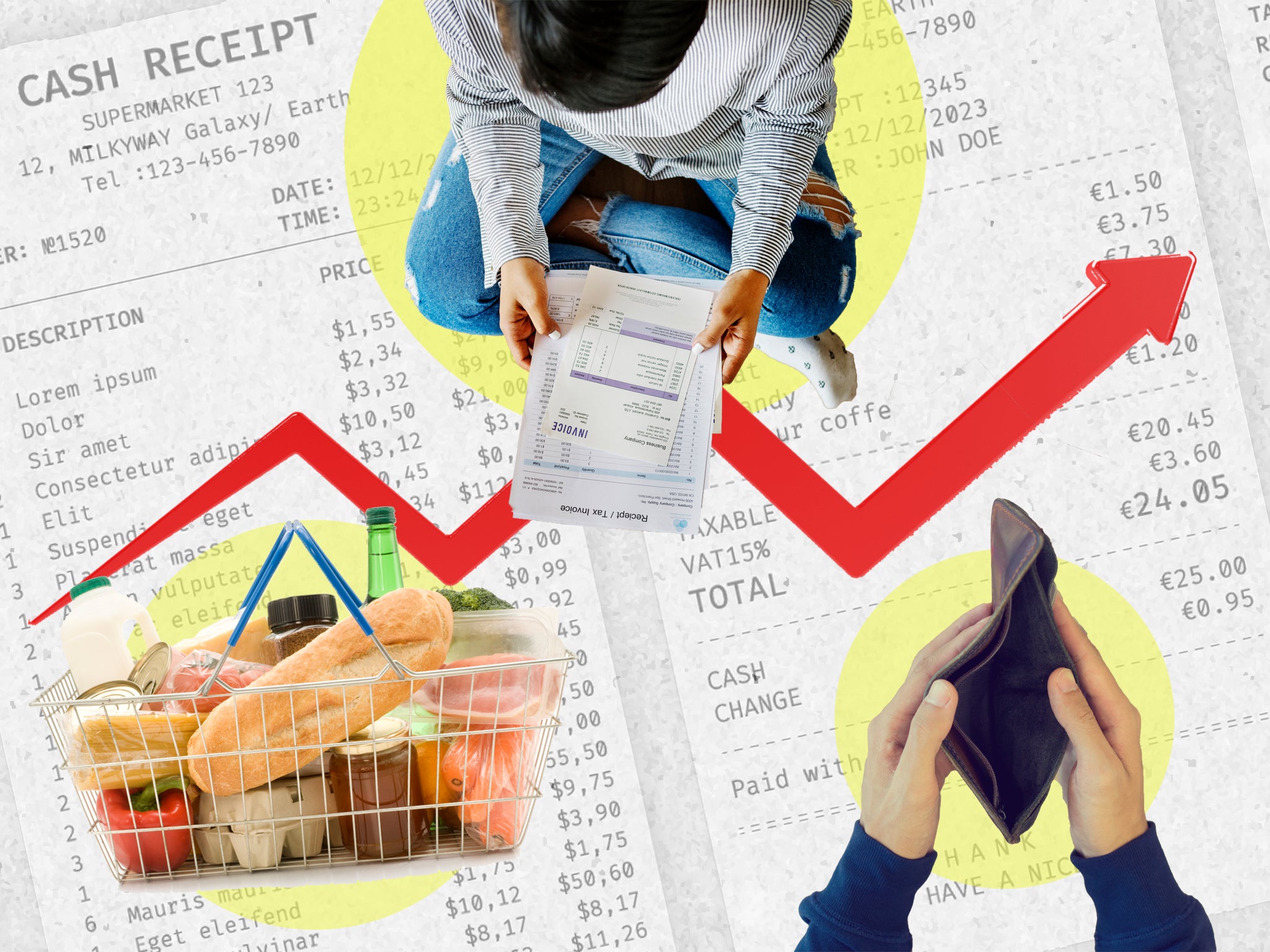New quiz to test numeracy skills as cost-of-living crisis deepens
Recent price hikes have left 45 per cent struggling to budget

Your support helps us to tell the story
From reproductive rights to climate change to Big Tech, The Independent is on the ground when the story is developing. Whether it's investigating the financials of Elon Musk's pro-Trump PAC or producing our latest documentary, 'The A Word', which shines a light on the American women fighting for reproductive rights, we know how important it is to parse out the facts from the messaging.
At such a critical moment in US history, we need reporters on the ground. Your donation allows us to keep sending journalists to speak to both sides of the story.
The Independent is trusted by Americans across the entire political spectrum. And unlike many other quality news outlets, we choose not to lock Americans out of our reporting and analysis with paywalls. We believe quality journalism should be available to everyone, paid for by those who can afford it.
Your support makes all the difference.A new quiz has been created ahead of national numeracy day on 18 May to see how confident Britons are in their everyday maths ability.
It tests numeracy skills on anything from working out a discount on a purchase to choosing a product based on best value for money.
The quiz was created after research found millions of Britons feared the rise in the cost of living due to a lack of mathematical ability.
A study of more than 3,000 adults found that 40 per cent avoided the topic and nearly seven in 10 felt there was little they could do.
Some 69 per cent said their lack of mathematical ability had not been a problem for them in the past, but was now affecting their ability to weather the economic storm.
National numeracy day is run by the charity National Numeracy and its supporter KPMG, which commissioned the research.
Bina Mehta, chair of the professional services firm in the UK, said: “The rising cost of living puts our nation’s numeracy skills firmly under the microscope.
“We all use numbers to navigate day-to-day life – from understanding interest rates to working out value for money while shopping – yet nearly half of the UK’s working population has the expected numeracy levels of a primary school child.
“That has real consequences for those lacking confidence, leaving them more vulnerable to debt, unemployment and fraud.
“Beyond the concerning impact on individuals, poor numeracy skills also inhibit our country’s productivity and ability to tackle inequality.
“Numeracy – alongside literacy and lifelong learning – is a key building block for improved social mobility. It lays the foundation for a healthier and more inclusive economy.”
Half of the adults surveyed said they confidently knew their total monthly outgoings, whereas 45 per cent relied either entirely or in part on someone else to take care of bills.
The recent price hikes have left 45 per cent struggling to budget, according to pollsters, while 37 per cent of respondents felt they were unsure how much things should cost. More than half (57 per cent) were trying to find ways to stretch their cash further.
More than one-third (36 per cent) admitted they were stressed about paying their bills – but also that 8 per cent felt uncomfortable seeking help with everyday maths.
Sam Sims, chief executive of National Numeracy, said: “As this new research shows, low numeracy can prevent us from being in control of our money and seeking help when we need to.
“But everyone can improve their confidence with numbers – National Numeracy has helped over 420,000 people do just that.
“Feeling confident with maths can help us make sense of our money and with the cost-of-living crisis, this is more important than ever.”
Some examples of everyday maths might include adjusting a recipe to serve more or fewer people, or working out the correct change in a shop.
One-third of respondents said past experiences have made them doubt their mathematics ability.
Ms Mehta added: “Nearly one-third of people believe that if you are bad with numbers, there is no way to improve, but we need to dispel that myth. It’s a skill like any other that can be improved.
“Now more than ever, our collective efforts will help to improve number confidence for all. It may not be a silver bullet in solving the cost-of-living crisis alone, but it is at the heart of helping people confidently navigate it.”
SWNS



Join our commenting forum
Join thought-provoking conversations, follow other Independent readers and see their replies
Comments